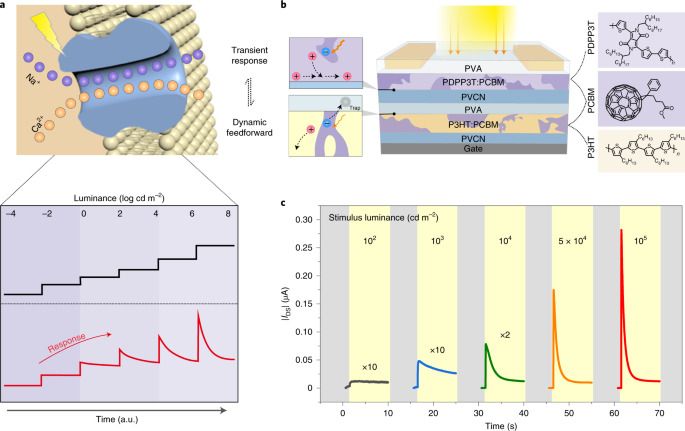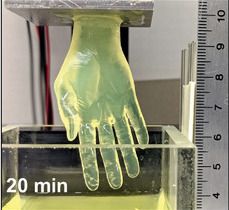German automaker targets BEVs in all segments by 2022 and will launch electric-only models from 2025.



India has undeniable strengths, too, of course. Its computing and commercial talent makes it natural territory for venture capital. The potential to spawn game-changing startups is there. But the money flowing into venture capital worldwide is not really seeking originality. Like a Hollywood producer, it prefers to back variants of ideas that have already been hits. India is a decent story, but only a few will make decent money from it. The numbers just don’t add up.
The formula for success cannot simply be copied across from America or China | Finance & economics.
Beijing’s Da Vinci Dynamics has launched its DC100, a high-performance electric streetbike with an impressive 250-mile (400 km) NEDC range, and some wacky “robotic” tricks, including the alleged ability to self-balance and follow you around.
We’ve got ourselves a bit of a kitchen sinker here; Da Vinci has thrown all sorts of features at this one. But even some of the basic specs are a tad elusive. For starters, while it makes a peak of 135 horsepower, putting it very much in the “fast electric” category, the company says it runs “a smart control system that seamlessly integrates multiple different motors.” Who the what now? Multiple motors? A separate press release then states it’s actually 137 horsepower, running through a hub motor.
Peak torque is listed at a ludicrous 850 Nm (627 lb-ft), but then hub motors often have wild torque specs; witness the outrageous Verge TS, with a hub motor that doesn’t even need a middle in it to break 1000 Nm (738 lb-ft). The DC100 will sprint from 0–100 km/h in somewhere between 3–4 seconds, so crazy torque or no crazy torque, a well-ridden gixxer will still see it off at the lights.


An organic transistor that incorporates two bulk heterojunctions can exhibit active photoadaptation behaviour for light intensities that range over six orders of magnitude.
The development of artificial visual systems that mimic biological systems requires devices that can autonomously adapt their response to varying stimuli. However, emulating biological feedforward visual adaptation is challenging and requires complementary photoexcitation and inhibition, ideally in a single device. Here we show that an organic transistor that incorporates two bulk heterojunctions is capable of light intensity-dependent active photoadaptation. The approach couples the photovoltaic effect in bulk heterojunctions with electron trapping in the dielectric layer, allowing adaptive modulation of the carrier concentration of the transistor. Our device exhibits active photoadaptation behaviour for light intensities ranging over six orders of magnitude (1 to 106 cd m−2).
Dubai uses drones to electrically charge clouds, causing tortential rains in one of the driest nations on Earth. Until now, such experiments had been done succeessfully from the ground only.
Info — Viral — Fun.
#Real #Dubai #makes #its #own #RAIN #to #tackle #122F #heat: #Drones #blast #clouds #with #electrical #charge #to #produce #downpours.
#The #rain #is #formed #using #drone #technology #that #gives #clouds #an #electric #shock #to #‘cajole #them’ #into #clumping #together #and #producing #precipitation.
The #UAE #is #one #of #the #most #arid #countries #on #Earth #and #the #technique #helps #to #increase #its #meagre #annual #rainfall #Video #shows #it #is #working #with #monsoon-like #downpours #across #the #country.
Dubai makes its own RAIN to tackle 122F heat: Drones blast clouds with electrical charge to produce downpours.
The rain is formed using drone technology that gives clouds an electric shock to ‘cajole them’ into clumping together and producing precipitation.
The UAE is one of the most arid countries on Earth and the technique helps to increase its meagre annual rainfall.
Video shows it is working with monsoon-like downpours across the country.
******************************************
Donate & Support the needy people (JUSTGIVING).
https://www.justgiving.com/crowdfunding/infoviralfun-help-po…=x72BzB5ZX
Subscribe our Channel:
http://bit.ly/2QkMlFb.
Top Video:
http://bit.ly/36OpU07
My Favorite:
The search for life beyond Earth is on.
NASA’s newest Mars rover is getting ready to collect its first rock sample from the surface of Mars and stow it away for a future return mission to Earth, where NASA will test it for signs of ancient microbial life.
Perseverance’s science campaign has just begun, and the rover has already stumbled upon interesting rocks and sedimentary layers that tell a part of Mars’ larger history.
The Perseverance rover landed on Mars on February 18 and has been on a Martian road trip ever since to scour its landing site, Jezero Crater. Jezero is a 28-mile wide, 1600-foot deep crater located in a basin slightly north of the Martian equator. It once housed an ancient lake estimated to have dried out 3.5 to 3.8 billion years ago.

A new tool that enables thousands of tiny experiments to run simultaneously on a single polymer chip will let scientists study enzymes faster and more comprehensively than ever before.
For much of human history, animals and plants were perceived to follow a different set of rules than rest of the universe. In the 18th and 19th centuries, this culminated in a belief that living organisms were infused by a non-physical energy or “life force” that allowed them to perform remarkable transformations that couldn’t be explained by conventional chemistry or physics alone.
Scientists now understand that these transformations are powered by enzymes – protein molecules comprised of chains of amino acids that act to speed up, or catalyze, the conversion of one kind of molecule (substrates) into another (products). In so doing, they enable reactions such as digestion and fermentation – and all of the chemical events that happen in every one of our cells – that, left alone, would happen extraordinarily slowly.

Scientists from the University at Buffalo have developed a rapid new 3D bioprinting method that could represent a significant step towards fully-printed human organs.
Using a novel vat-SLA-based approach, the team have been able to reduce the time it takes to create cell-laden hydrogel structures, from over 6 hours to just 19 minutes. The expedited biofabrication method also enables the production of embedded blood vessel networks, potentially making it a significant step towards the lifesaving 3D printed organs needed by those on transplant waiting lists.
“Our method allows for the rapid printing of centimeter-sized hydrogel models,” explained the study’s lead co-author, Chi Zhou. “It significantly reduces part deformation and cellular injuries caused by the prolonged exposure to the environmental stresses you commonly see in conventional 3D printing.”
Circa 2015
It’s no TIE fighter, but the Dawn probe is driven by the future of spacecraft propulsion: ion engines.